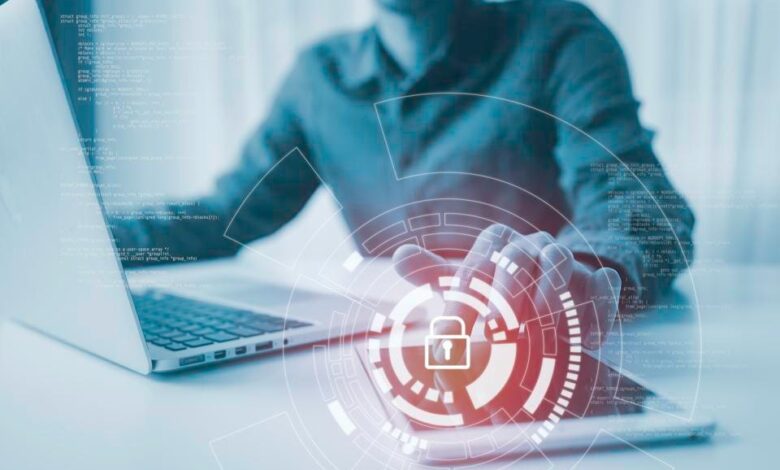Cybersecurity and online privacy

In today’s digital age, cybersecurity and online privacy have become increasingly important concerns for everyone who uses the internet. From individuals to businesses, online security has become a necessity to protect sensitive information and data from cyber-attacks. In this article, we will cover everything you need to know about cybersecurity and online privacy, including why they matter, common threats, and best practices to stay safe online.
Introduction
The internet has become an integral part of our daily lives, from social media to online banking. However, with the rise of technology, there has also been an increase in cybercrime. Cybersecurity and online privacy are essential in today’s digital world to protect personal and sensitive information from cyber-attacks. In this article, we will discuss the importance of cybersecurity and online privacy, common cyber threats, and best practices to stay safe online.
Why Cybersecurity and Online Privacy Matter
Cybersecurity and online privacy are crucial for individuals and businesses alike. Cyber attacks can result in data breaches, financial losses, and damage to reputations. The rise of remote work has made online security even more important, with employees accessing company data and networks from their homes. Cybersecurity and online privacy also protect personal information such as social security numbers, bank account details, and medical records.
Common Cyber Threats
Cyber threats are continually evolving, and attackers are always finding new ways to exploit vulnerabilities. Some common cyber threats include:
Malware
Malware is short for malicious software, which includes viruses, trojans, and spyware. Malware infects devices and can damage, steal, or corrupt data.
Phishing
Phishing is a type of social engineering where attackers send fraudulent emails or messages to trick users into revealing sensitive information such as login credentials.
Social Engineering
Social engineering is a technique used by cybercriminals to manipulate individuals into revealing sensitive information. Attackers may pose as trusted sources, such as a bank or a colleague.
Password Attacks
Password attacks include brute force attacks and dictionary attacks, where attackers use software to guess passwords until they find the correct one.
Denial-of-Service (DoS) Attacks
DoS attacks are designed to overwhelm servers and networks, rendering them unusable. These attacks can cause financial damage and disrupt business operations.
Man-in-the-Middle (MitM) Attacks
MitM attacks involve intercepting communications between two parties. Attackers can read, modify or inject messages, and potentially steal sensitive data.
Best Practices for Cybersecurity and Online Privacy
To protect yourself from cyber threats, you must take proactive steps to ensure your online security. Here are some best practices for cybersecurity and online privacy:
Keep Your Software Up-to-Date
Software updates often include security patches to fix vulnerabilities. Keeping your software up-to-date is essential to protect against known threats.
Use Strong Passwords and Two-Factor Authentication
Using strong passwords and two-factor authentication adds an extra layer of security to your accounts. Passwords should be unique, and long and include a mix of letters, numbers, and symbols.
Beware of Suspicious Emails and Websites
Cybercriminals often use phishing emails and fake websites to trick users into revealing sensitive information. Be cautious of suspicious emails or websites, and never provide personal information unless you are sure it is a legitimate source.
Use a Virtual Private Network (VPN)
A VPN creates a secure and encrypted connection between your device and the internet. Using a VPN is especially important when accessing public Wi-Fi networks, which can be vulnerable to cyber-attacks.
Protect Your Mobile Devices
Mobile devices such as smartphones and tablets are vulnerable to cyber-attacks. Use passcodes or biometric authentication to secure your device, and be cautious of suspicious apps or messages.
Conclusion
Cybersecurity and online privacy are critical in today’s digital age. Cyber threats are continually evolving, and attackers are finding new ways to exploit vulnerabilities. It is essential to take proactive steps to ensure your online security, such as keeping software up-to-date, using strong passwords and two-factor authentication, and using a VPN. By following best practices for cybersecurity and online privacy, you can protect your personal information and prevent cyber attacks.


